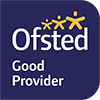Wellbeing at Mountbatten
Mountbatten Primary School is committed to providing a healthy and caring environment that promotes and supports positive mental health for our children, staff and stakeholders. Positive mental health is vital to what we do at school; it underpins the crucial work carried out to support children and their families. By considering children and staff wellbeing in all aspects of school life, a positive, healthy environment can be created that improves engagement, performance and achievement which in turn gives everyone an opportunity to develop and achieve their full potential.
Senior Mental Health Lead
At Mountbatten we have identified a senior mental health lead (Mr Hardwick) as being the strategic lead for implementing the whole school approach to mental health and wellbeing within the setting. The senior mental health lead understands and is able to explain how a whole school approach will benefit everyone, not just to mental health and wellbeing but more broadly improved attainment, attendance, reductions in behavioural problems, as well as happier, more confident and resilient children and young people.
ELSA
At Mountbatten, we train staff staff to become ELSAs. The ELSA (Emotional Literacy Support Assistant) intervention is designed to build the capacity of schools to support the emotional needs of their pupils from within their own resources. This is achieved by training staff to develop and deliver individualised support programmes to meet the emotional needs of our children. It recognises that children learn better and are happier in school if their emotional needs are also addressed. ELSA is an initiative developed and supported by educational psychologists, who apply their professional knowledge of children’s social and emotional development to areas of need experienced by pupils. They provide on-going professional supervision to help maintain high quality in the work undertaken by ELSAs, thereby helping to ensure safe practice for ELSAs and pupils alike. To find out more about this training, please see the link below.
Mental Health First Aid
At Mountbatten, we train staff in Mental Health First Aid. Mental Health First Aid (MHFA) is training which teaches staff how to identify, understand and help someone who may be experiencing a mental health issue. MHFA teaches staff to listen, reassure and respond, even in a crisis – and even potentially stop a crisis from happening. Staff learn to recognise warning signs of mental ill health, and develop the skills and confidence to approach and support someone while keeping themselves safe. Staff also learn how to empower someone to access the support they might need for recovery or successful management of symptoms. What’s more, staff gain an understanding of how to support positive wellbeing and tackle stigma in the world around us. To find out more about this training, please see the link below.
Mental health training online and face to face · MHFA England
The Best You Therapy
At Mountbatten we employ a qualified counsellor to support the needs of our children. The Best You Therapy is a counselling service led by Tracey Rees. Tracey is passionate about helping children and young people to live happy and fulfilled lives. Daily pressures on children and young people can be immense, from peers, the media, family situations, school and others. She works with children from a very wide variety of backgrounds and abilities, to help them be the best they can be.
Further resources:

“Curriculum plans are well sequenced.”

“Staff encourage
pupils to be independent from an early age.”

“Children settle into school quickly.”

“There are respectful relationships between adults and pupils.”

“Pupils say that behaviour is good.”

“The school enjoyed recent success when the computing club won a local area competition using their coding skills.”

“The school is calm and orderly. Pupils walk around school sensibly and are courteous to one another.”

“Pupils enjoy learning about a wide range of subjects.”

“Pupils access a range of visits and activities beyond their own experiences.”

” Some teachers check carefully to find out which pupils are stuck and which pupils need further challenge during lessons.”

“Pupils enjoy attending school.”

“Senior leaders, alongside the multi-academy trust, have provided subject leaders with training.”

“Pupils recommend the school to their friends.”

“Leaders have thought carefully about the curriculum plans they have introduced.”

“Adults help pupils who fall behind.”

“Pupils say they feel safe in school.”

“Teachers check what pupils have learned and remembered each term.”

“There are a wide range of school clubs.”

“Staff are well trained in teaching children to read.”

“There is a strong team culture within the school.”

“Teachers who are new to the school welcome the support they receive.”

“Leaders have considered what pupils might need to know to broaden their understanding of the world around them.”

“Staff work closely with professionals from external agencies to provide support for pupils with SEND.”

“Children start to learn to read as soon as they enter the school.”

“Leaders work well
with members of the multi-academy trust to support staff.”

“Pupils support each other well when they are completing their work.”

“The residential visit to Robinwood encourages pupils to experience new challenges and work collaboratively with their friends.”

“Leaders and teachers make regular checks to see how well pupils with special educational needs and/or disabilities (SEND) are doing.”

“Subject leaders are knowledgeable about their subjects.”

“There is a clear focus on the teaching of early mathematics and reading.”

“Teachers appreciate the support they receive from subject leaders to help them improve their teaching.”

“Pupils learn how to keep safe when using the internet.”

“The early years environment is inviting and well organised.”

“Pupils listen carefully to what adults say. They join in class discussions enthusiastically.”

“The ‘Mountbatten 50’ challenges pupils to complete a range of interesting activities
before they leave the school.”

“Staff welcome the highquality training they receive. They feel proud to work in the school.”



